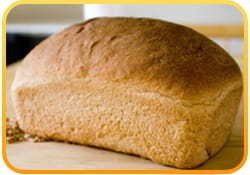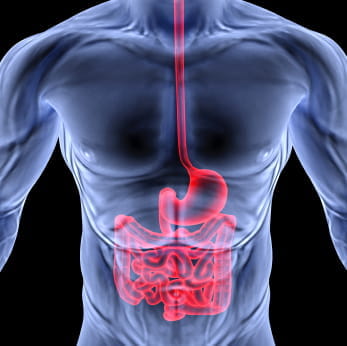This article shows you the TRUTH about yogurt so you know the facts...both good and bad

by Mike Geary, Certified Personal Trainer, Certified Nutrition Specialist
Author of best-sellers: The Truth About Six Pack Abs & The Top 101 Foods that FIGHT Aging
As you've probably noticed in the last couple of years, probiotics are all the rage as one of THE most important factors that helps control your immune system (an estimated 70% of your immune system resides in your gut), as well as your digestive system health.
Most people "think" they get enough health-boosting probiotics from yogurt (the average person eats yogurt almost daily). Unfortunately, there are some problems with yogurt that you need to be aware of...
1. First problem with yogurt:
Some brands of yogurt actually contain live cultures and some do not. Almost all yogurts found in the US start with pasteurized milk... that's not such a problem because once the live cultures are added and the milk fermented, you once again have a live and active food that's easier to digest than regular milk and has a reduced lactose content due to the consumption of lactose by the microbes.
Sadly, some brands pasteurize the yogurt AFTER it's been fermented (cultured) which kills the beneficial probiotics. On the other hand, most good brands of yogurt do NOT pasteurize after fermenting, so the probiotics are still alive for your benefit.
The amount of probiotics in yogurt varies widely based on the brand and type, but I've seen estimates anywhere from 1 Billion to 5 Billion CFUs per cup. This is decent, but low compared to some other probiotic sources we'll discuss in a bit.
The KEY is that you need to look for "live and active cultures" on the label, or another labeling that indicates the probiotics are still active.
2. Second problem with yogurt:
Most yogurts in the US are sadly adulterated with way too many sweeteners, whether sugar, corn syrup, or artificial sweeteners.
Remember that sucralose kills probiotics, so any yogurt that's been sweetened with sucralose (aka, splenda) will most likely have a greatly reduced probiotic content or possibly even be fully dead.
And most other yogurts are produced to appease the overly aggressive sweet taste buds of American consumers, so they simply contain too much sugar to be considered healthy.
I always recommend choosing unsweetened plain yogurt or plain greek yogurt and adding your own stevia or other natural sweetener if you need extra sweetness beyond the addition of whole fruit. Personally, I love to simply add a small scoop of Biotrust Low-Carb Vanilla protein to my plain yogurt (along with some berries and nuts) and it makes the PERFECT sweetness in my opinion!
I also personally choose FULL-fat yogurt and not all of this silly skim 0% yogurt that's out there these days. Remember that the extra fat in full-fat yogurt satisfies your appetite and cravings so that you eat less calories later in the day. If you eat these 0% fat yogurts, you'll end up hungrier in an hour or two. Also, if you can find yogurt from grass-fed cows, the fat portion of the yogurt is VERY healthy and contains powerful vitamin K2 (shown to reduce heart disease risk) as well as CLA (found to reduce cancer risk and help to reduce body fat), and also omega-3 fats, which you also know are vital to your health.
3. Third problem with yogurt:
The last problem with yogurt that I wanted to bring to your attention today is that yogurt is not necessarily the best source of probiotics, both in terms of quantity and also variety of strains.
Variety is KEY when it comes to the overall power of probiotics for your immunity and digestion.
Most yogurts only contain 3-4 strains of probiotics. On the other hand, Kefir is a fermented dairy drink that contains anywhere from 10-20 strains of probiotics depending on the brand and type. In addition, Lassi is an Indian style fermented dairy drink that also contains a much wider variety of strains than yogurt does.
In terms of quantity of probiotics, yogurts generally contain between 1 Billion to 5 Billion CFU's per cup, whereas most Kefir or Lassi contains anywhere from 7 Billion to 50 Billion active CFU's per cup depending on the brand and type. Most yogurts are only cultured for 2-3 hours, whereas kefir is generally cultured for 12-16 hours, increasing it's probiotic content and making it easier for digestion.
Also, most Kefir is 99% lactose free and is by far the easiest to digest type of dairy on the market due to the "predigestion" that the active cultures perform on the kefir before you drink it.
Kefir is a GREAT addition to any smoothies that you make instead of using water or almond milk because you get the immune system and digestive system benefits of the probiotics in Kefir, which you can't get in almond milk.
Again, I personally choose FULL-FAT (for the reasons I described above with full-fat yogurt as well) when I look for a good kefir and I try to find grass-fed as well. If I don't use kefir in smoothies, one way I like it is just simply to add a small touch of real maple syrup, vanilla, and chia seeds to a cup of kefir -- amazingly delicious snack for anytime!
Interestingly, I recently found out from their website that Lifeway brand kefir is made from grass-fed milk in ALL of their products (even though they don't include that on the labels), so the fat content in Lifeway kefir will also contain those ever so important nutrients of vitamin K2 for heart health, CLA for cancer protection and body fat reduction, and omega 3 fats for overall health. The full-fat greek kefir by Lifeway is my favorite and I use it almost every day!
With all of this said about yogurt and kefir, please note that I do NOT drink regular commercial milk that's been pasteurized and homogenized. It's a dead food that has harmful microscopic fat particles due to the homogenization. On the other hand, yogurts and kefirs generally start with pasteurized milk, (but NOT homogenized), and are made alive and easier to digest again through the fermentation process.
For this reason, I choose to NEVER use commercial milk, but I use yogurt several times a week, and I use Kefir DAILY because of it's health benefits and great taste.
Lastly, if you're one of those folks that thinks that all dairy is bad for you because you've fallen for certain anti-animal food propaganda that floats around out there on the internet, here's one last fact to consider that might make some vegans want to switch to vegetarians...
It's well known that in the Caucasus Mountains and other areas of eastern Europe, that natives to that area drink kefir daily throughout their lives and routinely live to over 100 years old. And in India, fermented dairy in the form of Lassi is routinely consumed with daily meals, and they display much better health than the average American.
Clearly, if "dairy was bad for you" as many so-called "experts" seem to like to claim, these natives in the Caucasus Mountains that drink fermented dairy every day of their lives wouldn't be living to 100 years old! Just shows you to beware of who you trust for your health information.
Also, remember that VARIETY of probiotics is KEY... that's why in addition to kefir, lassi, yogurt, and fermented veggies (krauts, kimchi, etc) as good sources for a variety of strains of probiotics, I also personally take this powerful probiotic supplement daily, which I think is particularly powerful due to the micro-encapsulation technology which keeps the probiotics alive through your harsh stomach so that they can properly colonize your intestines.
Feel free to share today's yogurt and kefir article with your friends that would like it. Easy sharing options below:

by Mike Geary, Certified Personal Trainer, Certified Nutrition Specialist
Author of best-sellers: The Truth About Six Pack Abs & The Top 101 Foods that FIGHT Aging
As you've probably noticed in the last couple of years, probiotics are all the rage as one of THE most important factors that helps control your immune system (an estimated 70% of your immune system resides in your gut), as well as your digestive system health.
Most people "think" they get enough health-boosting probiotics from yogurt (the average person eats yogurt almost daily). Unfortunately, there are some problems with yogurt that you need to be aware of...
1. First problem with yogurt:
Some brands of yogurt actually contain live cultures and some do not. Almost all yogurts found in the US start with pasteurized milk... that's not such a problem because once the live cultures are added and the milk fermented, you once again have a live and active food that's easier to digest than regular milk and has a reduced lactose content due to the consumption of lactose by the microbes.
Sadly, some brands pasteurize the yogurt AFTER it's been fermented (cultured) which kills the beneficial probiotics. On the other hand, most good brands of yogurt do NOT pasteurize after fermenting, so the probiotics are still alive for your benefit.
The amount of probiotics in yogurt varies widely based on the brand and type, but I've seen estimates anywhere from 1 Billion to 5 Billion CFUs per cup. This is decent, but low compared to some other probiotic sources we'll discuss in a bit.
The KEY is that you need to look for "live and active cultures" on the label, or another labeling that indicates the probiotics are still active.
2. Second problem with yogurt:
Most yogurts in the US are sadly adulterated with way too many sweeteners, whether sugar, corn syrup, or artificial sweeteners.
Remember that sucralose kills probiotics, so any yogurt that's been sweetened with sucralose (aka, splenda) will most likely have a greatly reduced probiotic content or possibly even be fully dead.
And most other yogurts are produced to appease the overly aggressive sweet taste buds of American consumers, so they simply contain too much sugar to be considered healthy.
I always recommend choosing unsweetened plain yogurt or plain greek yogurt and adding your own stevia or other natural sweetener if you need extra sweetness beyond the addition of whole fruit. Personally, I love to simply add a small scoop of Biotrust Low-Carb Vanilla protein to my plain yogurt (along with some berries and nuts) and it makes the PERFECT sweetness in my opinion!
I also personally choose FULL-fat yogurt and not all of this silly skim 0% yogurt that's out there these days. Remember that the extra fat in full-fat yogurt satisfies your appetite and cravings so that you eat less calories later in the day. If you eat these 0% fat yogurts, you'll end up hungrier in an hour or two. Also, if you can find yogurt from grass-fed cows, the fat portion of the yogurt is VERY healthy and contains powerful vitamin K2 (shown to reduce heart disease risk) as well as CLA (found to reduce cancer risk and help to reduce body fat), and also omega-3 fats, which you also know are vital to your health.
3. Third problem with yogurt:
The last problem with yogurt that I wanted to bring to your attention today is that yogurt is not necessarily the best source of probiotics, both in terms of quantity and also variety of strains.
Variety is KEY when it comes to the overall power of probiotics for your immunity and digestion.
Most yogurts only contain 3-4 strains of probiotics. On the other hand, Kefir is a fermented dairy drink that contains anywhere from 10-20 strains of probiotics depending on the brand and type. In addition, Lassi is an Indian style fermented dairy drink that also contains a much wider variety of strains than yogurt does.
In terms of quantity of probiotics, yogurts generally contain between 1 Billion to 5 Billion CFU's per cup, whereas most Kefir or Lassi contains anywhere from 7 Billion to 50 Billion active CFU's per cup depending on the brand and type. Most yogurts are only cultured for 2-3 hours, whereas kefir is generally cultured for 12-16 hours, increasing it's probiotic content and making it easier for digestion.
Also, most Kefir is 99% lactose free and is by far the easiest to digest type of dairy on the market due to the "predigestion" that the active cultures perform on the kefir before you drink it.
Kefir is a GREAT addition to any smoothies that you make instead of using water or almond milk because you get the immune system and digestive system benefits of the probiotics in Kefir, which you can't get in almond milk.
Again, I personally choose FULL-FAT (for the reasons I described above with full-fat yogurt as well) when I look for a good kefir and I try to find grass-fed as well. If I don't use kefir in smoothies, one way I like it is just simply to add a small touch of real maple syrup, vanilla, and chia seeds to a cup of kefir -- amazingly delicious snack for anytime!
Interestingly, I recently found out from their website that Lifeway brand kefir is made from grass-fed milk in ALL of their products (even though they don't include that on the labels), so the fat content in Lifeway kefir will also contain those ever so important nutrients of vitamin K2 for heart health, CLA for cancer protection and body fat reduction, and omega 3 fats for overall health. The full-fat greek kefir by Lifeway is my favorite and I use it almost every day!
With all of this said about yogurt and kefir, please note that I do NOT drink regular commercial milk that's been pasteurized and homogenized. It's a dead food that has harmful microscopic fat particles due to the homogenization. On the other hand, yogurts and kefirs generally start with pasteurized milk, (but NOT homogenized), and are made alive and easier to digest again through the fermentation process.
For this reason, I choose to NEVER use commercial milk, but I use yogurt several times a week, and I use Kefir DAILY because of it's health benefits and great taste.
Lastly, if you're one of those folks that thinks that all dairy is bad for you because you've fallen for certain anti-animal food propaganda that floats around out there on the internet, here's one last fact to consider that might make some vegans want to switch to vegetarians...
It's well known that in the Caucasus Mountains and other areas of eastern Europe, that natives to that area drink kefir daily throughout their lives and routinely live to over 100 years old. And in India, fermented dairy in the form of Lassi is routinely consumed with daily meals, and they display much better health than the average American.
Clearly, if "dairy was bad for you" as many so-called "experts" seem to like to claim, these natives in the Caucasus Mountains that drink fermented dairy every day of their lives wouldn't be living to 100 years old! Just shows you to beware of who you trust for your health information.
Also, remember that VARIETY of probiotics is KEY... that's why in addition to kefir, lassi, yogurt, and fermented veggies (krauts, kimchi, etc) as good sources for a variety of strains of probiotics, I also personally take this powerful probiotic supplement daily, which I think is particularly powerful due to the micro-encapsulation technology which keeps the probiotics alive through your harsh stomach so that they can properly colonize your intestines.
Feel free to share today's yogurt and kefir article with your friends that would like it. Easy sharing options below:






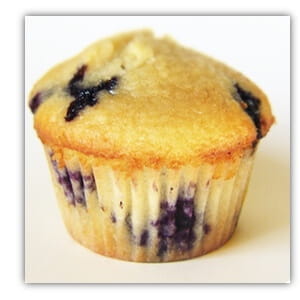
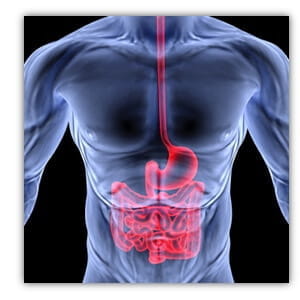 The topic of gluten is on fire in the media lately... But most people are confused as to whether there's any real health risks with gluten for the average person that doesn't have Celiac disease.
The topic of gluten is on fire in the media lately... But most people are confused as to whether there's any real health risks with gluten for the average person that doesn't have Celiac disease.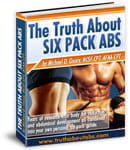 A more detailed and comprehensive nutritional
A more detailed and comprehensive nutritional  Due
to biochemical reactions in your body that occur with every type of
food you eat on a daily basis, some foods age you FASTER than your real
age, while other foods help to FIGHT aging.
Due
to biochemical reactions in your body that occur with every type of
food you eat on a daily basis, some foods age you FASTER than your real
age, while other foods help to FIGHT aging.
